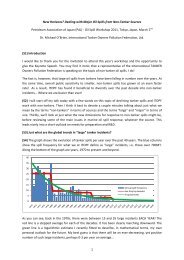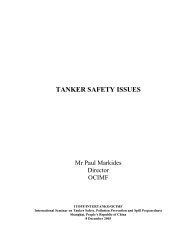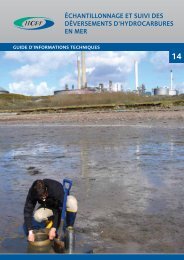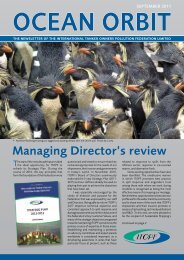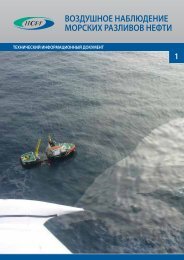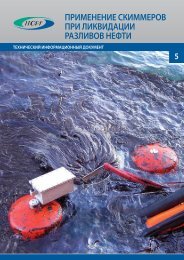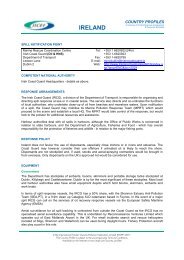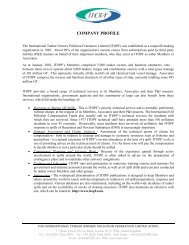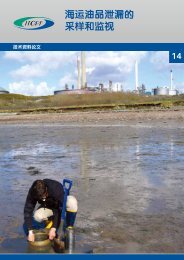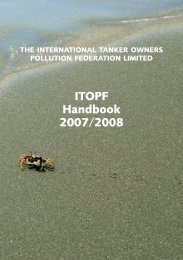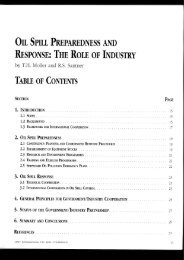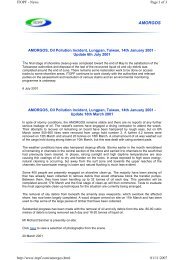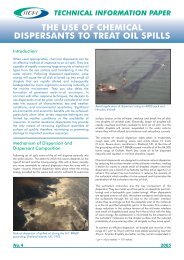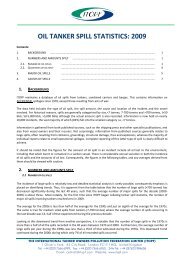Members Handbook 20023 - ITOPF
Members Handbook 20023 - ITOPF
Members Handbook 20023 - ITOPF
You also want an ePaper? Increase the reach of your titles
YUMPU automatically turns print PDFs into web optimized ePapers that Google loves.
and animals which are characteristic of<br />
the habitat and are functioning normally<br />
in terms of biodiversity and productivity.<br />
Environmental Impacts<br />
The exact nature and duration of any<br />
impacts from an oil spill depend on a<br />
number of factors. These include the<br />
type and amount of oil and its behaviour<br />
once spilled; the physical characteristics<br />
of the affected area; weather conditions<br />
and season; the type and effectiveness<br />
of the clean-up response; the biological<br />
and economic characteristics of the area<br />
and their sensitivity to oil pollution.<br />
Typical effects on marine organisms<br />
range across a spectrum from toxicity<br />
(especially for light oils and products) to<br />
smothering (heavier oils and weathered<br />
residues). The presence of toxic<br />
components does not always cause<br />
mortality, but may induce temporary<br />
effects like narcosis and tainting of<br />
tissues, which usually subside over<br />
time. Some typical oil impacts are<br />
described below.<br />
Plankton<br />
Their importance in primary<br />
productivity of the oceans and as a<br />
temporary home for the eggs and larvae<br />
of fish, shellfish, sea bed and shoreline<br />
organisms is well known, but is there<br />
evidence of widespread harm to<br />
these functions from spills which<br />
subsequently translates into long-term<br />
damage? Unfortunately, plankton is<br />
extremely difficult to study reliably<br />
because they are amongst the most<br />
variable of marine communities in space<br />
and in time. The presence of oil on open<br />
water is also patchy and transient,<br />
making it difficult to establish where and<br />
when the plankton might have been<br />
exposed to the oil. Laboratory studies<br />
have demonstrated toxic and sub-lethal<br />
effects on the plankton caused by oil,<br />
and there is little doubt that there is<br />
potential for widespread impact. Whilst<br />
the possibility of long-term effects can<br />
not be excluded, there is no indication<br />
that oil-induced losses of eggs and larval<br />
stages cause a significant decline in<br />
adult populations.<br />
Seabirds<br />
Seabirds are amongst the most<br />
vulnerable inhabitants of open waters<br />
since they are easily harmed by floating<br />
oil. Species that dive for their food or<br />
which congregate on the sea surface are<br />
particularly at risk. Although oil ingested<br />
by birds during attempts to clean<br />
themselves by preening may be lethal,<br />
23



